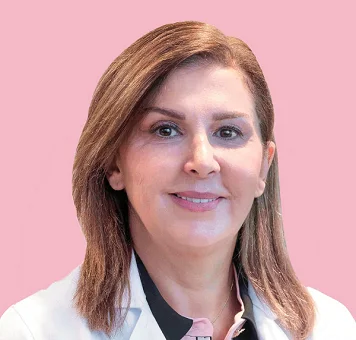Drinks and Foods to avoid during pregnancy
Pregnant women often wonder about their diet during pregnancy, and usually have questions such as: what are the foods to avoid during pregnancy? Are there foods that should be avoided during certain stages of pregnancy? Are there drinks that a pregnant woman should avoid? Find out the answers in this article.


Foods to avoid during pregnancy
- Raw meats
Such as Sushi and raw kibbe. All types of raw meat may contain a virus called Toxoplasma that might cause fetal deformities if the pregnant woman gets infected. In some cases, the expecting mother might have immunity to this virus, but other viruses happen due to the consumption of raw meats, such as salmonella or Listeria, this is why they must be avoided during all stages of pregnancy. Cold cuts, such as pepperoni and mortadella must also be avoided, unless they are heated or cooked as a pizza topping, to be sure that all viruses are eliminated.
- Raw eggs
Raw eggs contain salmonella which can cause a severe bacterial infection that is harmful to the expecting mother’s health. Although Salmonella is not as severe as Toxoplasma, a pregnant woman must avoid such infections.
- Non pasteurized cheese
Pregnant women can have pasteurized cheese, but soft and unpasteurized cheeses must be avoided during pregnancy, as they might cause an acute viral infection.
- Fish that might have mercury contamination
Although not popular in our region, fish that might be contaminated with mercury such as sharks, must not be part of the pregnant woman’s diet.
- Diet foods containing artificial sweeteners
Artificial sweeteners in general must be avoided, especially by pregnant women. As they are harmful to the mother’s and baby’s health.
Drinks to avoid during pregnancy
- Caffeinated drinks
Consuming high quantities of Caffeine can be harmful to the mother’s and baby’s health. It is noteworthy that this doesn’t mean that pregnant women can’t consume coffee or tea at all, but instead they must monitor their caffeine intake, avoid soda drinks and make sure that their caffeine comes only from natural sources, such as coffee and tea and that it doesn’t exceed 200 milliliters.
- Diet drinks
As mentioned above pregnant women need to avoid sodas, especially the ones containing artificial sweeteners, that are harmful to pregnant women.
- Certain herbal drinks
There are sometimes warnings to expectant mothers from those around them, to avoid herbal drinks such as Cinnamon tea. Some of these drinks if consumed in large quantities at once might stimulate contractions and cause preterm labor.
- Alcoholic drinks
Pregnant women must avoid alcohol completely during pregnancy. Alcohol consumption might cause fetal deformities. Studies that confirmed that didn’t mention the amount of alcohol that does. So it’s best to avoid alcohol completely.
- Energy drinks
These drinks must not be on a pregnant woman’s drinks menu, as they contain high quantities of caffeine, artificial sweeteners, and other ingredients that can cause heart palpitations.
Special diets during pregnancy
The test for gestational diabetes performed during the sixth month of pregnancy might show that a pregnant woman has elevated blood sugar. Depending on the results the OBGYN decides the diet and treatment plan. An expecting mother suffering from gestational diabetes might be asked to follow a diet low in sugars and carbs only. Or follow this diet along with certain medications prescribed by the doctors.
It is also important that a pregnant woman doesn’t consume foods that are high in salts, such as pickled foods, and salted nuts. These foods cause water retention, gestational hypertension, and in some cases preeclampsia.
Also check out Vaginal birth after cesarean: All you need to know






